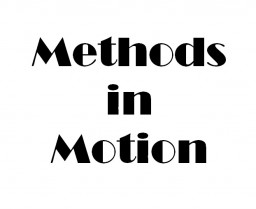
Researchers talk of a textual or discursive turn that happened in the social sciences a few decades ago. In social psychology, this turn happened around the time I was doing my undergraduate degree in Psychology and Sociology (1985-88). It was closely connected with ‘social constructionist’ thinking. Between 1985 and 1987 new publications in psychology presented arguments for the social construction of a variety of topics from ‘the emotions’ through ‘lesbianism’ to ‘the person’.
For my undergraduate dissertation, supervised by Rex Stainton Rogers, I used a technique called Q methodology to study the different discursive frames that people adopt when they think about what it means to be an authentic and/or sincere person. This was my first adventure into social psychological research and I was interested in studying the forms of language and symbolism through which people construct their realities. The question, in other words, was not ‘What is an authentic person?’, but ‘What different ways of constructing authenticity do people draw upon?’, closely followed by ‘What are the implications of constructing oneself as an authentic person according to these different models?’
Q methodology enabled me to identify a variety of different models or versions of authenticity and it quickly became clear that these were not timeless universals but historical and cultural products. Some models, for example, used a version of sincerity similar to that invented by the romantic poets, whilst others – agreeing with existential philosophers – thought of it as closer to authenticity.
As a result, I came to think of social psychology less as a search for universal laws, and more as a discipline whose subject matter is tightly bound to the flow of historical, biographical and experiential time. Q methodology allowed me to take snapshots of regions of relative stability amidst the flux. Each narrative version of authenticity could be likened to a whirlpool or eddy, its integrity kept alive by its movement as it is passed from speaker to speaker.
In addition to foregrounding the reality of process, the discursive turn also implied a rather different way of thinking about research participants and their relationship to researchers, and hence of expertise in general. In the then-predominant model of psychological science, participants were viewed as subjects to be submitted to measurements of various kinds to discover what they were ‘really’ like. For example, psychometric measures of personality and attitude were designed to measure, from a third-person perspective, what attitudes or personality a person really held. There is an assumption that a person’s personality is more or less fixed, and what they are ‘really’ like is assessed from the ‘expert’ perspective of a psychologist.
In Q methodology, by contrast, participants are given an equivalent status to researchers: they are viewed as self-interpreting interpreters, drawing on existing knowledge to make sense of their lives and worlds. Our sense-making is always partial, variable and provisional because the world we seek to make sense of is forever changing, like the proverbial river that differs each time we set foot in it. Of course there will be some processes that flow deeper than others, or with more stability, but ultimately all is in flux
Social constructionism was as much a political as an epistemological intervention, and as such it can only be properly grasped in these hybrid terms. What on the epistemological plane was a challenge to any essentialism that claimed a fixed order became, on the political plane, a critique of institutionalised power. This mixture opened up a new research agenda which sought to deconstruct the objective pretensions of knowledge claims, and to show their implications for people’s lives. It affirmed that social order is – amongst other things – an effect of the constant and collective performances of actors influenced and integrated by forms of knowledge that shape the ‘meaning’ of their actions and experiences.
Arguably we are now living in very different social and political times. Some would say that social constructionism has outlived its usefulness, or worse, that it has been hijacked by a dangerous ‘post-truth’ ideology. Many have criticised a tendency to focus too narrowly on discursive constructions at the expense of affective, embodied and material processes, for example. In times that are premised less on enduring structures than on permanent change, deconstruction is not the preserve of critical researchers but the clarion call of corporate managers. It should not surprise us, perhaps, if at this juncture we see researchers articulating more explicitly processual forms of thought and types of method which take the notion of motion – and the possibility of stability within motion – ever more seriously.
More on Methods in Motion
The Methods in Motion blogs are by researchers linked to the Centre for Citizenship, Identities and Governance. The blogs represent their opinions emerging from research in progress, and do not necessarily represent the views of the Research Centre or Open University. You can discover more about Methods in Motion on the CCIG website.






Rate and Review
Rate this article
Review this article
Log into OpenLearn to leave reviews and join in the conversation.
Article reviews